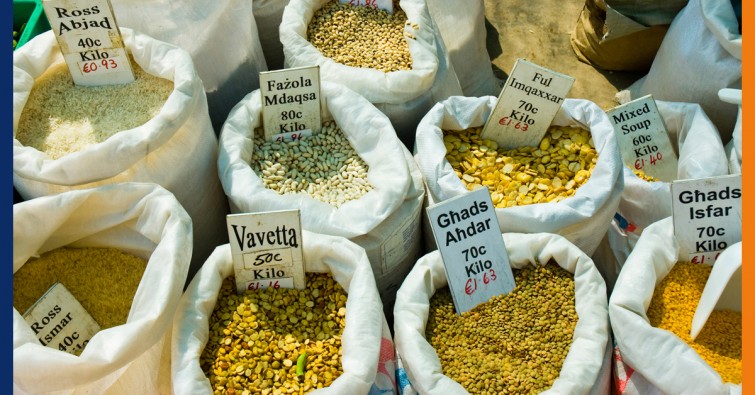Thought for food
Almost every academic experiences a crisis at some point. A sense of helplessness, a realization that no matter how much you seek to study or understand the world, some things are not as easily solved outside the classroom. I had mine during my PhD-research. While studying quite fundamental and theoretical network optimization algorithms, I went on a so-called “working holiday” to the rural areas of Northern Ghana. The people I met there lacked electricity, drinking water and other basics. To make matters worse, their harvest was extremely poor that year due to a relentless drought. It was clear to me that my mathematical proof that some algorithms can be implemented in O(N) rather than O(N log N) running time would not improve their health or living conditions. I felt disappointed and helpless for a while. So many years invested in research and study, and there seemed to be very little I could do. It took a grand experience to shake this feeling off…
In 2007, I was one of the finalists for the Franz Edelman Award. This renowned prize is awarded yearly to the best implementation of optimization algorithms world-wide. My team helped Coca-Cola achieve huge savings in costs and emissions by optimizing their beverage distribution, but the winners, Dr. Marco Zaider (Memorial Sloan-Kettering Cancer Center) and Prof. Eva K. Lee (Georgia Institute of Technology), saved a considerable amount of lives by using advanced optimization techniques for cancer therapy. Their work improves the survival rate of cancer patients, reduces the side effects of treatment, and reduces costs to the health care system. This made me see the value of mathematics and optimization in a new light.
World Food Program
A few months later, a contact at TNT Express asked me: if a matching algorithm between demand and supply can be executed in polynomial time, why don’t you use this to solve the world’s food problem? It made me realize that we could do better, and apply our knowledge for the common good. As a result, we implemented the same optimization algorithm we applied at Coca-Cola to improve how the World Food Program (WFP) distributes food in various African countries. Every euro they save in transportation costs is directly put into more food for people in need.
North Star Alliance
Nowadays, a considerable amount of colleagues, both at Tilburg University and ORTEC (my other employer), are focused on optimizing the world. Prof. den Hertog and his researchers have improved the cancer therapy I mentioned earlier, and Prof. Fleuren and his researchers are engaged with the WFP for all kind of food optimization projects. Similarly, ORTEC has a strong cooperation with North Star Alliance, an organization that brings quality and sustainable health services to isolated populations. Optimization enables North Star to decide on the optimal location of their clinics and number of people they employ at their Roadside Wellness Centers. The project’s impact was recently recognized by the UN’s Business Action on Health Awards. And this is only the tip of the iceberg. There are many more inspiring examples from all over the world. One of my Master’s degree classmates, for instance, went on to work with the Red Cross to optimize their logistics.
Tilburg University
Tilburg University has a tagline – “Understanding Society”. Understanding the way people act and live is a great thing, but understanding without taking action is useless. We should not only understand, but roll up our sleeves and fix the world’s problems. So, I am very much in favor of a new tagline. And who knows, maybe we all need a dip now and then to think about life, see things from a new perspective, and put our energy where it matters. With our optimization techniques and knowledge of econometrics, finance and Operations Research we are sitting on a goldmine. Are you ready to put it to good use? Let’s optimize society!
An edited version of this article was previously published in Nekst the quarterly magazine of Asset Econometrics, the Tilburg School of Economics and Management (TiSEM) study association.
By Goos Kant

